-
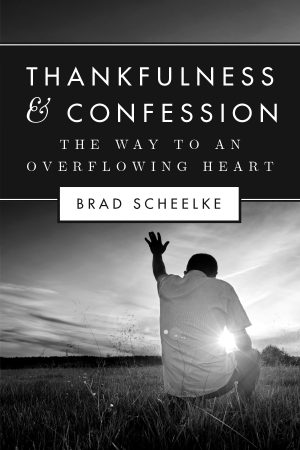 “Oh, the depth of the riches and wisdom and knowledge of God!” (Rom. 11:33). Our heavenly Father has given us unfathomable blessings, but we often fail to live as if they are truly ours. In thankfulness and Confession, Brad Scheelke encourages readers to meditate on and rejoice in the glorious riches of our inheritance in Christ. As we regularly give thanks for what God has given us, our thoughts and actions will begin to change . . . often in surprising ways. Gratitude also changes how we deal with sin. When we confess our sin, bringing it into the light of Christ’s riches, we now see not only the darkness of our own evil, but also the beauty of God’s holiness and grace. When we learn to practice thankfulness and confession in this way, our hearts will overflow in joy, in love for one another, and in glory to God.
“Oh, the depth of the riches and wisdom and knowledge of God!” (Rom. 11:33). Our heavenly Father has given us unfathomable blessings, but we often fail to live as if they are truly ours. In thankfulness and Confession, Brad Scheelke encourages readers to meditate on and rejoice in the glorious riches of our inheritance in Christ. As we regularly give thanks for what God has given us, our thoughts and actions will begin to change . . . often in surprising ways. Gratitude also changes how we deal with sin. When we confess our sin, bringing it into the light of Christ’s riches, we now see not only the darkness of our own evil, but also the beauty of God’s holiness and grace. When we learn to practice thankfulness and confession in this way, our hearts will overflow in joy, in love for one another, and in glory to God. -
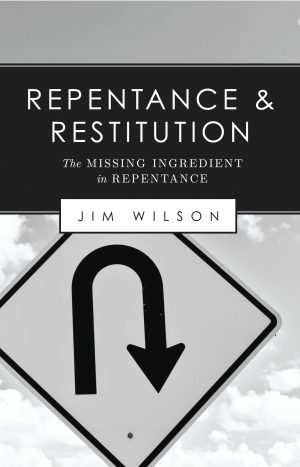 Jesus’ death paid for our sins - the guilt, the death, and the punishment. Jesus does not repay the man who got ripped off when we stole from him. According to the Bible, the person who comes to the Lord in repentance is to pay the one he stole from the value of the stolen goods plus one fifth of the value. But what if it is a candy bar you took twenty years ago? The amount stolen and the time since the theft do not make it yours. There are many Christians who are living subnormal Christian lives because they are too proud or too afraid to make restitution. They are like people with low-grade fevers; they are not sick enough to be in bed, but too sick to do anything worthwhile. Even if no one knows about the thefts, these Christians are poor witnesses for Jesus Christ. They may have confessed and repented in words, but if they do not make restitution, it is not true repentance, and they are not forgiven.
Jesus’ death paid for our sins - the guilt, the death, and the punishment. Jesus does not repay the man who got ripped off when we stole from him. According to the Bible, the person who comes to the Lord in repentance is to pay the one he stole from the value of the stolen goods plus one fifth of the value. But what if it is a candy bar you took twenty years ago? The amount stolen and the time since the theft do not make it yours. There are many Christians who are living subnormal Christian lives because they are too proud or too afraid to make restitution. They are like people with low-grade fevers; they are not sick enough to be in bed, but too sick to do anything worthwhile. Even if no one knows about the thefts, these Christians are poor witnesses for Jesus Christ. They may have confessed and repented in words, but if they do not make restitution, it is not true repentance, and they are not forgiven. -
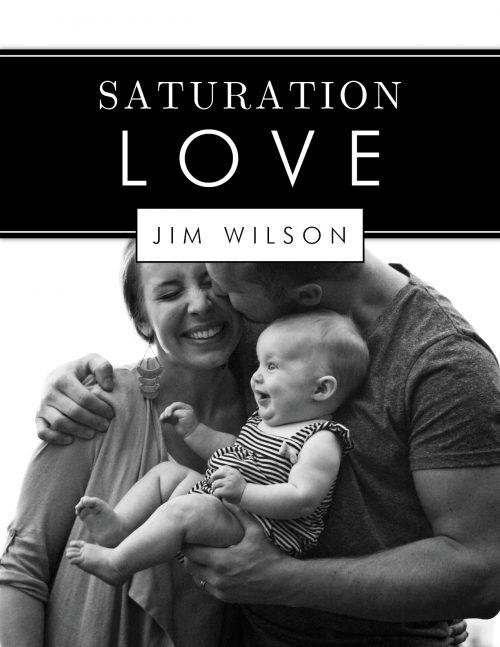 We love our kids, but do we love like God loves....without conditions, reservations, or reluctance? In this excerpt from his popular book How to be Free from Bitterness, Jim Wilson identifies the troublesome consequences of insufficient parental love and points readers to the glorious fruit of superabundant kindness, and patience and helps parents apply the eternal truths of Scripture to grow peace and joy in their homes.
We love our kids, but do we love like God loves....without conditions, reservations, or reluctance? In this excerpt from his popular book How to be Free from Bitterness, Jim Wilson identifies the troublesome consequences of insufficient parental love and points readers to the glorious fruit of superabundant kindness, and patience and helps parents apply the eternal truths of Scripture to grow peace and joy in their homes.
-
 Bitterness often grows out of a small offense - perhaps a passing word, an accidental shove, or a pair of dirty socks left in the middle of the living room floor. Yet when bitterness takes root in our hearts, its effects are anything but small. In this collection of short articles, Jim Wilson and others discuss what it means to live as "imitators of God." As the Apostle Paul says in Ephesians, we have been called to leave the bitterness and anger of the world and instead embrace the love and compassion of our God. The authors remind us that we are to forgive others just as we have been forgiven, pointing to Scriptural admonitions and examples as they offer sound teaching on the trials and temptations of everyday life. Have an Audible account? Get this title on Audible here. Did you know we give away more copies of How to Be Free from Bitterness than we sell? These copies are paid for entirely by donations. Have you been blessed by this booklet? You can help fund copies for someone else by making a tax-deductible gift to the literature fund here.
Bitterness often grows out of a small offense - perhaps a passing word, an accidental shove, or a pair of dirty socks left in the middle of the living room floor. Yet when bitterness takes root in our hearts, its effects are anything but small. In this collection of short articles, Jim Wilson and others discuss what it means to live as "imitators of God." As the Apostle Paul says in Ephesians, we have been called to leave the bitterness and anger of the world and instead embrace the love and compassion of our God. The authors remind us that we are to forgive others just as we have been forgiven, pointing to Scriptural admonitions and examples as they offer sound teaching on the trials and temptations of everyday life. Have an Audible account? Get this title on Audible here. Did you know we give away more copies of How to Be Free from Bitterness than we sell? These copies are paid for entirely by donations. Have you been blessed by this booklet? You can help fund copies for someone else by making a tax-deductible gift to the literature fund here. -
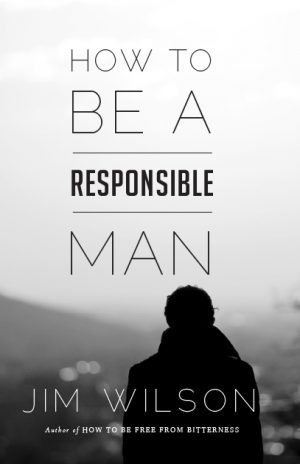
Men were designed, created, and commanded to bear responsibility, but our history of failure in this area stretches all the way back to Adam. Today irresponsibility is considered normal, even a birthright. Jim Wilson outlines the causes and results of this failure, the biblical principles and characteristics that define a responsible man, and how men can apply them both in their own lives and in raising their sons.
Masculinity does not have to be proved with muscularity, sexual prowess, or bragging. True masculinity is established by taking up the responsibility God has given you.
-
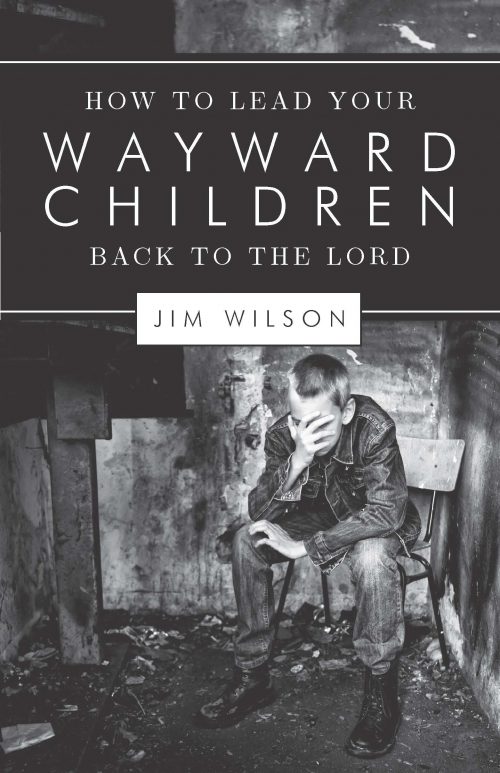 You love God. You love your kids. So why don’t they love Him? God promises lovingkindness to a thousand generations for families who love and obey Him (Deut. 7:9). Why are children who grew up in Christian homes leaving the faith, and how do we get them to come back? No matter how old your children are, there is a solution. With decades of pastoral wisdom, Jim Wilson identifies the common causes of rebellion and helps parents apply the eternal truths of Scripture to “turn the hearts of the parents to their children and the disobedient to the wisdom of the righteous—to make ready a people prepared for the Lord” (Luke 1:17).
You love God. You love your kids. So why don’t they love Him? God promises lovingkindness to a thousand generations for families who love and obey Him (Deut. 7:9). Why are children who grew up in Christian homes leaving the faith, and how do we get them to come back? No matter how old your children are, there is a solution. With decades of pastoral wisdom, Jim Wilson identifies the common causes of rebellion and helps parents apply the eternal truths of Scripture to “turn the hearts of the parents to their children and the disobedient to the wisdom of the righteous—to make ready a people prepared for the Lord” (Luke 1:17).
-
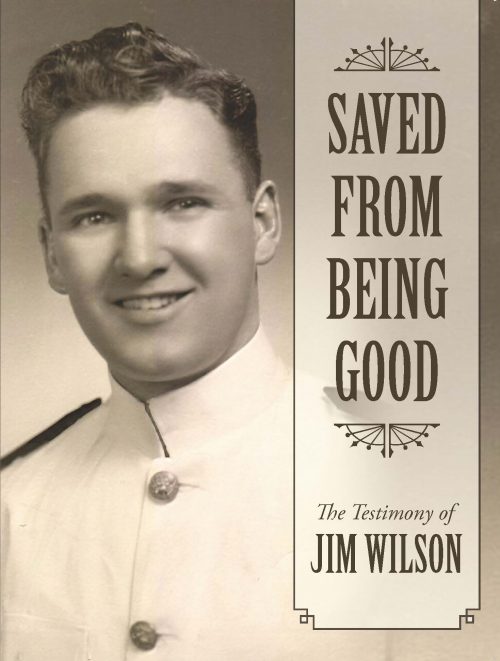 Naval Academy midshipman Jim Wilson didn't cuss or smoke or chew or go with girls who do. When a friend asked him if he was going to heaven, Jim replied, "If someone like me can't make it, heaven is going to be thinly populated." It was a serious answer, but his friend laughed. Jim was in for a surprise: Turns out you have to be bad to go to heaven.
Naval Academy midshipman Jim Wilson didn't cuss or smoke or chew or go with girls who do. When a friend asked him if he was going to heaven, Jim replied, "If someone like me can't make it, heaven is going to be thinly populated." It was a serious answer, but his friend laughed. Jim was in for a surprise: Turns out you have to be bad to go to heaven. -
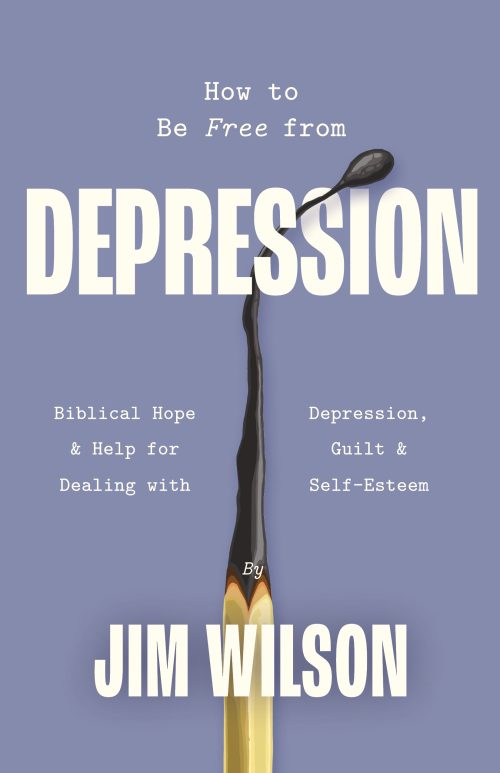 The thoughts you have when you’re depressed come from the devil. The good news for you is that the devil is a liar. Do you feel weighed down all the time? Perhaps, although you are a Christian and know you’re going to heaven, your spiritual life seems mediocre at best. You know the Bible says to rejoice always, and you’d like to be living joyfully, but you just don’t know how. In this sequel to How to Be Free from Bitterness, Jim Wilson returns to talk about how to deal with (and get rid of) depression, feelings of guilt, and problems with self-esteem. Many Christians feel like they are enslaved to these sins, like there is no way out. But this is not true. The truth is that Christ has freed us from the penalty of sin and the power of sin. If you are a Christian, you are already free. Depression, guilt, low self-esteem—whatever your problem is, it can be put to death. “And you will know the truth, and the truth will make you free” (John 8:32).
The thoughts you have when you’re depressed come from the devil. The good news for you is that the devil is a liar. Do you feel weighed down all the time? Perhaps, although you are a Christian and know you’re going to heaven, your spiritual life seems mediocre at best. You know the Bible says to rejoice always, and you’d like to be living joyfully, but you just don’t know how. In this sequel to How to Be Free from Bitterness, Jim Wilson returns to talk about how to deal with (and get rid of) depression, feelings of guilt, and problems with self-esteem. Many Christians feel like they are enslaved to these sins, like there is no way out. But this is not true. The truth is that Christ has freed us from the penalty of sin and the power of sin. If you are a Christian, you are already free. Depression, guilt, low self-esteem—whatever your problem is, it can be put to death. “And you will know the truth, and the truth will make you free” (John 8:32). -
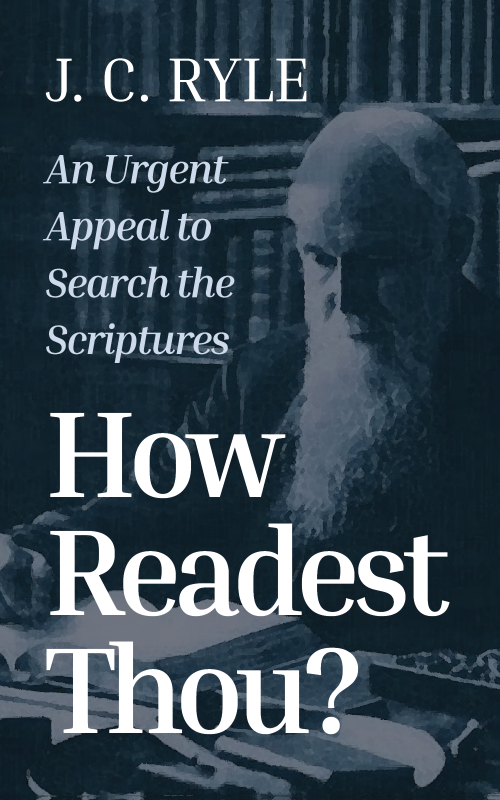 Join J.C. Ryle as he explains the benefits of reading (and rereading) the Bible, and find inspiration for your daily devotions in this classic work. Do you read the Bible? “I’m not a Christian, so what’s the point?” “I read it once – why do I need to read it again?” Why should you read the Bible? For eighteen centuries it has been studied and prayed over by millions of Christians and explained and preached by thousands of ministers. It meets the hearts and minds and consciences of Christians in the twenty-first century as fully as it did when it was first completed. It is still the first book which fits children’s minds when they begin to learn religion, and the last to which the old man clings as he leaves the world. It is the book for every heart, because God who alone knows all hearts dictated it. The Bible alone explains the state of things that we see in the world around us. There are many things on earth which a natural man cannot explain. The amazing inequality of conditions, the poverty and distress, the oppression and persecution, the failures of politicians and legislators, the constant existence of uncured evils and abuses—all these things are often puzzling. We see it, but do not understand. But the Bible makes it all clear. Do you read the Bible? Come and read the book whose teaching “turned the world upside down.” Come read the Bible.
Join J.C. Ryle as he explains the benefits of reading (and rereading) the Bible, and find inspiration for your daily devotions in this classic work. Do you read the Bible? “I’m not a Christian, so what’s the point?” “I read it once – why do I need to read it again?” Why should you read the Bible? For eighteen centuries it has been studied and prayed over by millions of Christians and explained and preached by thousands of ministers. It meets the hearts and minds and consciences of Christians in the twenty-first century as fully as it did when it was first completed. It is still the first book which fits children’s minds when they begin to learn religion, and the last to which the old man clings as he leaves the world. It is the book for every heart, because God who alone knows all hearts dictated it. The Bible alone explains the state of things that we see in the world around us. There are many things on earth which a natural man cannot explain. The amazing inequality of conditions, the poverty and distress, the oppression and persecution, the failures of politicians and legislators, the constant existence of uncured evils and abuses—all these things are often puzzling. We see it, but do not understand. But the Bible makes it all clear. Do you read the Bible? Come and read the book whose teaching “turned the world upside down.” Come read the Bible. -
 The Holy Spirit is in business these days. Christ is healing wounds that no one else can heal. People all over the world are experiencing the love of God in a new way. The Spirit is blowing our fences down, reconciling us to God and each other. Sin remains just talk about ethics, until the Holy Spirit comes, and we find ourselves caught red-handed in His revealing light. But the blessed Holy Spirit is not a policeman. He is the Friend of the guilty. He convicts in order to liberate. See what happens when a person comes afresh to Him.
The Holy Spirit is in business these days. Christ is healing wounds that no one else can heal. People all over the world are experiencing the love of God in a new way. The Spirit is blowing our fences down, reconciling us to God and each other. Sin remains just talk about ethics, until the Holy Spirit comes, and we find ourselves caught red-handed in His revealing light. But the blessed Holy Spirit is not a policeman. He is the Friend of the guilty. He convicts in order to liberate. See what happens when a person comes afresh to Him. -
 “I had never read anything like this in the religious books of the Hindus.” After years of searching for something more than the hopeless existence her religion offered to those not born into a high caste, Pandita had at last discovered someone who could uplift the downtrodden women of India—and every land. “To me, who but a few moments ago ‘sat in the region and shadow of death, light had sprung up’ (Matthew 4:16).” In An Honorable Heritage, Pandita Ramabai tells her story of being born into the privileged Brahman caste and leaving tradition behind for something far better—the light and hope she found in Christ.
“I had never read anything like this in the religious books of the Hindus.” After years of searching for something more than the hopeless existence her religion offered to those not born into a high caste, Pandita had at last discovered someone who could uplift the downtrodden women of India—and every land. “To me, who but a few moments ago ‘sat in the region and shadow of death, light had sprung up’ (Matthew 4:16).” In An Honorable Heritage, Pandita Ramabai tells her story of being born into the privileged Brahman caste and leaving tradition behind for something far better—the light and hope she found in Christ. -
 “Above all else, guard your heart, for it is the wellspring of life” (Prov. 4:23). Whether we know it or not, all of us have had heart trouble. The good news is that Jesus Christ is the best heart specialist of all time. In this collection, Bessie examines the Bible’s references to the heart: what God says about our condition, and what provision He has made for us in Jesus Christ. It is no-nonsense Bible teaching with an emphasis on practical application.
“Above all else, guard your heart, for it is the wellspring of life” (Prov. 4:23). Whether we know it or not, all of us have had heart trouble. The good news is that Jesus Christ is the best heart specialist of all time. In this collection, Bessie examines the Bible’s references to the heart: what God says about our condition, and what provision He has made for us in Jesus Christ. It is no-nonsense Bible teaching with an emphasis on practical application.
